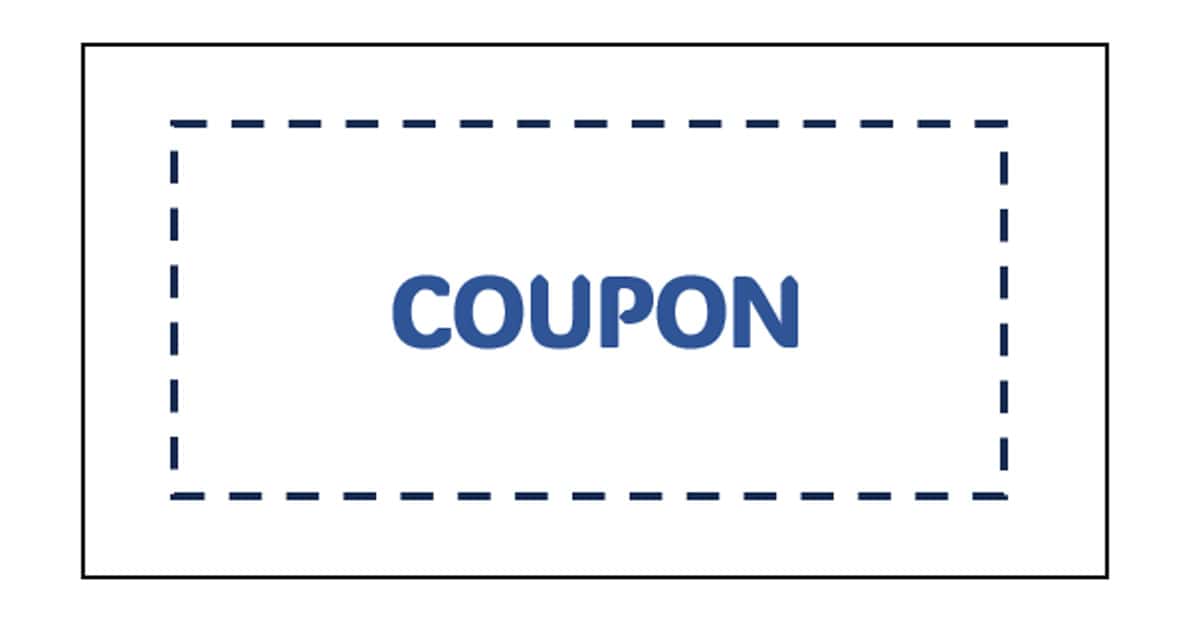Patient Education and Self-Management Explained: The Secret to Transforming Your Healthcare Journey

Patients and caregivers also ask
Self-management education can significantly improve your health outcomes by providing you with the knowledge and skills needed to understand and manage your health condition effectively. This education helps you adhere to medication regimens, make informed lifestyle changes, and promptly recognize and address any complications or side effects. Being educated about your condition also empowers you to communicate more effectively with healthcare providers, ask relevant questions, and participate actively in your treatment decisions. Overall, it increases your confidence and ability to take control of your health, leading to better adherence to treatments and improved overall well-being.
Self-management education enhances your ability to communicate effectively with healthcare providers by equipping you with the necessary knowledge and understanding of your health condition, treatments, and medical terminology. This education enables you to ask informed questions, express your concerns clearly, and provide accurate information about your symptoms and treatment adherence. It also helps you understand the explanations and instructions given by your healthcare providers, leading to more productive and collaborative interactions. As a result, you can actively participate in your healthcare decisions, ensuring that your needs and preferences are considered, ultimately leading to better health outcomes.
Once you are taught self-management skills, you can’t unlearn this valuable information. This knowledge stays with you, allowing you to build on it and improve your ability to care for yourself and your loved ones. The long-term benefits of being an educated and proactive patient include:
Improved Health Outcomes: Increased knowledge and proactive management can lead to better adherence to treatment plans, timely recognition of symptoms, and prompt action, resulting in improved overall health.
Enhanced Communication: Being well-informed allows for more effective and meaningful interactions with healthcare providers, ensuring that your concerns are addressed and that you understand your treatment options.
Increased Confidence and Control: Education empowers you to take control of your healthcare, making you more confident in managing your condition and making informed decisions.
Reduced Healthcare Costs: Proactive management can help prevent complications and reduce the need for emergency interventions, ultimately lowering healthcare expenses.
Better Quality of Life: Understanding your condition and how to manage it can lead to improved physical and mental well-being, allowing you to maintain a higher quality of life.
Preventative Care: Knowledge of preventative measures and early detection strategies can help you avoid the onset of new health issues.
Empowerment and Independence: Being educated and proactive fosters a sense of empowerment and independence, reducing reliance on others and increasing self-sufficiency in managing your health.
Enhanced Caregiving Abilities: The knowledge gained not only helps you take care of yourself more effectively but also equips you to care for your loved ones, making you a more capable and informed caregiver.
You need more education than what your provider gives you during appointments because the brief time spent with your healthcare provider is often not enough to cover all aspects of managing your health effectively. During appointments, the focus is typically on immediate concerns, diagnosis, and treatment options, which leaves little time for in-depth education on managing your condition daily. Additional self-management education empowers you to:
Understand Your Condition: Gain a deeper understanding of your health condition, which helps you make informed decisions and manage your health proactively.
Enhance Communication: Improve your ability to communicate effectively with healthcare providers, ensuring your concerns are addressed and you understand your treatment plan fully.
Improve Adherence: Learn strategies to adhere to medication regimens and lifestyle changes, which can lead to better health outcomes.
Recognize Symptoms Early: Identify symptoms and side effects promptly, allowing for quicker intervention and preventing complications.
Manage Daily Health Tasks: Equip yourself with the skills to manage daily health tasks, such as monitoring symptoms, maintaining health records, and making dietary and lifestyle adjustments.
Reduce Healthcare Costs: Prevent complications and avoid emergency interventions by managing your health more effectively, ultimately lowering healthcare expenses.
Gain Confidence and Control: Feel more confident and in control of your health, reducing anxiety and stress associated with managing a chronic condition.
Provide Better Care: Use the knowledge to not only take better care of yourself but also to support and care for loved ones more effectively.
Overall, additional education helps bridge the gap between the information given during appointments and the comprehensive understanding needed to manage your health successfully.
Understanding how to navigate the medical landscape can significantly reduce stress, anxiety, and feelings of overwhelm by providing you with the tools and knowledge needed to manage your health more effectively. Here’s how:
Clear Communication: Knowing how to ask the right questions and understand medical terminology helps you communicate better with healthcare providers, ensuring you receive clear and comprehensive answers to your concerns.
Informed Decisions: With a deeper understanding of your condition and treatment options, you can make more informed decisions about your care, which fosters a sense of control and empowerment.
Efficient Record-Keeping: Learning how to organize and maintain your health records ensures you have all necessary information at your fingertips, reducing the chaos and confusion often associated with managing multiple documents and appointments.
Early Detection: Being educated about your condition allows you to recognize symptoms and potential issues early, leading to prompt intervention and preventing complications that could cause stress.
Confidence in Self-Management: Mastering self-management skills gives you the confidence to handle your healthcare needs independently, which can reduce reliance on others and boost your self-assurance.
Reduced Uncertainty: Understanding the healthcare system and knowing what to expect during medical visits or treatments can reduce the fear of the unknown, leading to less anxiety about future health-related events.
Proactive Health Management: By taking a proactive approach to your health, you can prevent many health issues from arising, thereby reducing the overall stress associated with managing chronic conditions.
Support Network: Learning how to navigate the healthcare system includes knowing how to access support services and resources, which can provide additional help and reduce the burden on you.
Overall, a thorough understanding of the medical landscape equips you with the skills to manage your health effectively, leading to a significant reduction in stress, anxiety, and feelings of being overwhelmed.
Now, an Introduction to Education and Self-Management
Education and Self-Management News – In 2017, Lucy, a retired school teacher, was diagnosed with a chronic health condition. Despite having a medical team by her side, she often felt overwhelmed by the labyrinthine healthcare system. Keeping track of her healthcare records, understanding complex medical jargon, and managing medication schedules seemed like a Herculean task. It’s a struggle faced by many individuals worldwide, but it doesn’t have to be this way. Lucy’s life changed when she discovered the Patient Better’s Health Advocacy Program, an innovative online learning platform designed to empower patients by improving their ability to self-manage their healthcare.
In today’s fast-paced and increasingly complex healthcare environment, managing one’s health records and treatments can be daunting. It’s no secret that patients who actively participate in their care tend to have better health outcomes. However, the gap between patients’ willingness to be involved and their capacity to effectively manage their healthcare is still significant. This gap is where patient education and self-management come into play. They are not just buzzwords but powerful tools that can transform patients’ lives.
This article will introduce you to the transformative power of patient education and self-management through the lens of the Patient Better’s Health Advocacy Program. As we journey through the complexities of healthcare, we will see how this program provides solutions to the challenges faced by people like Lucy and helps them navigate the intricate world of health management. Patient Better is more than a program; it’s a revolution, empowering patients to become better advocates for their health.
The Importance of Education in Self-Management
The role of patients in their healthcare has evolved drastically over the past few decades. Patients are no longer passive recipients of care but are expected to play an active role in decision-making and management of their health. This significant shift underscores the vital role of patient education and self-management in contemporary healthcare.
Self-management has a direct impact on health outcomes. Research indicates that patients who are educated about their condition and are actively engaged in managing their healthcare experience better health outcomes. They are more likely to adhere to medication regimens, make lifestyle changes, and report any side effects or complications promptly.
However, the necessity of patient education goes beyond achieving better health outcomes. It’s about enabling patients to feel in control of their health and to engage confidently with their healthcare providers. The ability to understand one’s condition, treatments, and navigate the healthcare system is a prerequisite to effective self-management.
That said, patient education and self-management are not without their challenges. Factors such as health literacy, accessibility of information, the complexity of the healthcare system, and patient engagement can impact the effectiveness of self-management strategies. These challenges underline the need for comprehensive, patient-centric solutions like the Patient Better’s Health Advocacy Program.
Overview of Patient Better’s Health Advocacy Program
Patient Better’s Health Advocacy Program is an innovative, online learning platform that is making self-health advocacy a reality for patients around the world. The program is comprehensive, user-friendly, and designed specifically to equip patients with the knowledge and tools they need to manage their healthcare efficiently and effectively.
The program uniquely addresses the common obstacles faced by patients in their journey to self-manage their health. For instance, it demystifies medical jargon by offering clear, understandable explanations, allowing patients to better comprehend their diagnoses and treatment plans. The program also provides a systematic method for managing health records, ensuring important medical information is organized and readily accessible when needed.
The effectiveness of the Patient Better’s Health Advocacy Program is not just theoretical. Take the case of Lucy, who we introduced earlier. After using the program, Lucy was able to confidently manage her health records, understand her medical needs, and communicate effectively with her healthcare providers. This is not an isolated story, as the program has numerous similar success stories from patients who have taken charge of their healthcare and witnessed substantial improvements in their health outcomes.
The power of the Patient Better’s Health Advocacy Program lies in its ability to empower patients to take the driver’s seat in their healthcare journey. By fostering self-advocacy skills and promoting a thorough understanding of the healthcare system, it’s transforming the patient’s role from a passive recipient to an active, knowledgeable participant in their health management.
The Impact of the Patient Better Program on Self-Health Advocacy
By imparting vital healthcare management skills, the Patient Better’s Health Advocacy Program is empowering patients to become effective self-advocates. By taking charge of their health, patients can influence the quality of care they receive, and ultimately, their health outcomes.
The benefits of the program are multifaceted. For starters, it saves time by streamlining health record management. This can reduce the stress associated with sorting through volumes of medical paperwork. More importantly, it improves communication with healthcare providers, enabling patients to ask the right questions and understand the answers. The increased confidence patients gain from understanding their health conditions and treatments can also lead to improved compliance and potentially better health outcomes.
The program’s impact can be seen in the numbers. For instance, 85% of the users report feeling more in control of their health after completing the program. Additionally, studies suggest a 15% decrease in medical errors among users of the program, indicating that informed patients can contribute to safer healthcare. While these figures are promising, the true value of the program lies in the transformation of the patient’s experience, from feeling overwhelmed to feeling confident and in control.
By bridging the gap between the need for patient involvement and the capacity for effective self-management, the Patient Better’s Health Advocacy Program is making a significant contribution to patient empowerment and healthcare improvement. The program underscores the adage that knowledge is power, especially when it comes to one’s health.
Conclusion: The Future of Healthcare Self-Management
Patient education and self-management are more than just trends in healthcare—they are the future. As our healthcare system continues to evolve, patients who are equipped with the necessary knowledge and tools to navigate this complex landscape will be at a distinct advantage.
The Patient Better’s Health Advocacy Program is at the forefront of this revolution, transforming patients into informed, proactive participants in their healthcare journey. It’s helping to shape a future where the relationship between patients and healthcare providers is a partnership, with patients actively involved in decisions about their health.
Just like Lucy, you too can take control of your health. If you’re feeling overwhelmed by your healthcare journey or simply want to play a more active role in your health management, consider becoming part of the Patient Better community.
We invite you to learn more about the Patient Better’s Health Advocacy Program. Explore how it can empower you to take the reins of your healthcare, help you navigate the complex healthcare system, and transform your health outcomes. Remember, your health is your most precious asset, and you have the power to manage it effectively. Take the first step today towards becoming a better advocate for your health.
When it comes to your health, there’s no better advocate than you. Embrace the future of healthcare self-management with the Patient Better’s Health Advocacy Program. Because when you’re better informed, you’re better equipped to make decisions that can enhance your health and overall quality of life.
End of article.
Did you find this article useful and want to take the next step in becoming your own health advocate?
Stay in touch with us by connecting, liking, subscribing, reposting, or sharing with us on social media.
Disclaimer
The information provided here is for educational and entertainment purposes only. It is not intended as, nor should it be considered a substitute for professional medical advice, diagnosis, or treatment. Always seek the advice of your physician or other qualified health provider with any questions you may have regarding a medical condition. If you think you may have a medical emergency, immediately call 911 or your local emergency number.
Recommended Reads
If you found this article insightful, enhance your health advocacy journey with these carefully selected reads, chosen to deepen your understanding and empower your healthcare decisions.
Is learning a health advocacy program right for you?
Patient Better is a groundbreaking, all-in-one solution that empowers individuals to become recognized health advocates. With our comprehensive Health Advocacy Program, we provide aspiring advocates with the knowledge, skills, and resources needed to navigate the complexities of the healthcare system effectively. This unique program covers a wide range of topics, from understanding medical concepts, processes, and financial intricacies, to learning effective communication skills, patient advocacy techniques, and the importance of holistic wellness. Participants will emerge with a comprehensive skill set that enables them to navigate the healthcare landscape with confidence and positively impact their lives.
By enrolling in the Patient Better Health Advocacy Program, participants gain access to expert-led training sessions, interactive workshops, and real-world case studies. The curriculum is thoughtfully designed to equip advocates with practical tools to support patients and their families during challenging medical situations. As advocates, they learn to bridge the communication gap between healthcare providers and patients, ensuring that medical decisions are well-informed and aligned with the patient’s best interests.
Consider purchasing the Patient Better Health Advocacy Program if:
You or your family are facing challenges in communicating, coordinating, or collaborating on your healthcare efficiently and effectively.
You or your family have received a medical diagnosis and seek to minimize errors, oversights, and uninformed decisions.
You or your family are looking for a cost-effective solution to navigate and understand your health journey.
With the Patient Better Health Advocacy Program, you’ll gain the support and expertise needed to navigate the complexities of the healthcare system, empowering you to make informed decisions and improve your overall healthcare experience.
Coupon Code: Use HealthAdvocate10 for 10% off your purchase of the Patient Better Start-up Program and start your journey towards a more empowered and easier health journey.

For Search Engines
The article emphasizes the significance of patient education and self-management in improving health outcomes. It introduces the Patient Better’s Health Advocacy Program, an online platform designed to empower patients with the knowledge and tools necessary to manage their healthcare effectively. By enhancing patients’ understanding of medical information and their ability to organize health records, the program aims to transform patients into proactive participants in their health management journey. The ultimate goal is to bridge the gap between patient involvement and effective self-management, leading to better healthcare experiences and outcomes.

